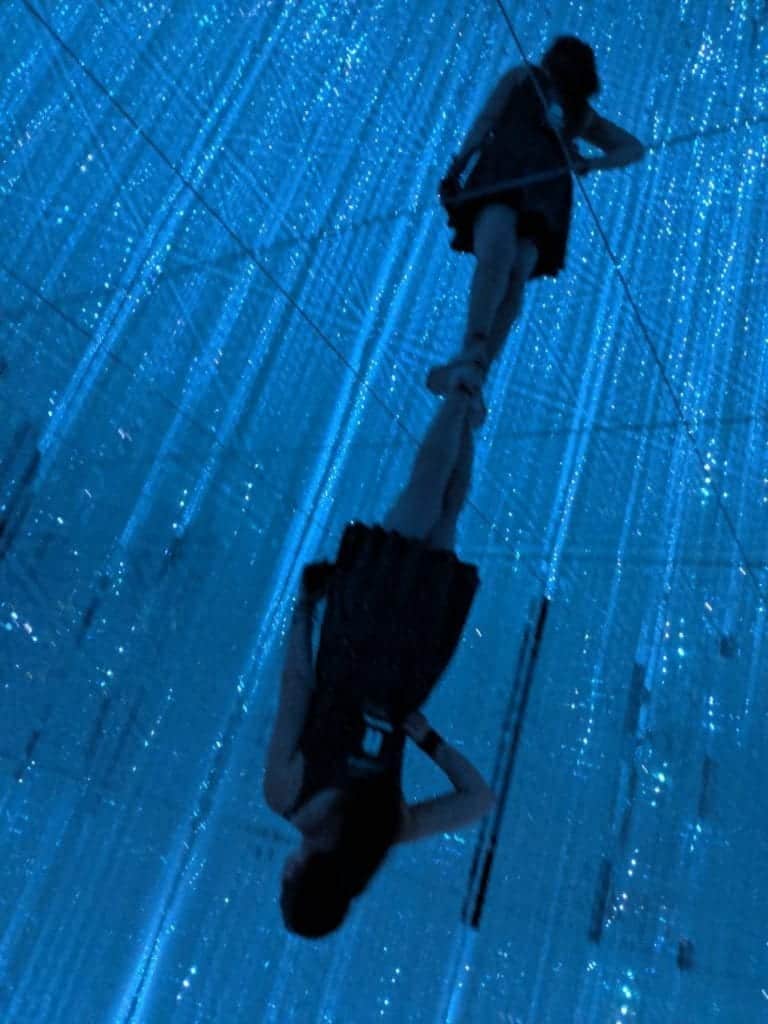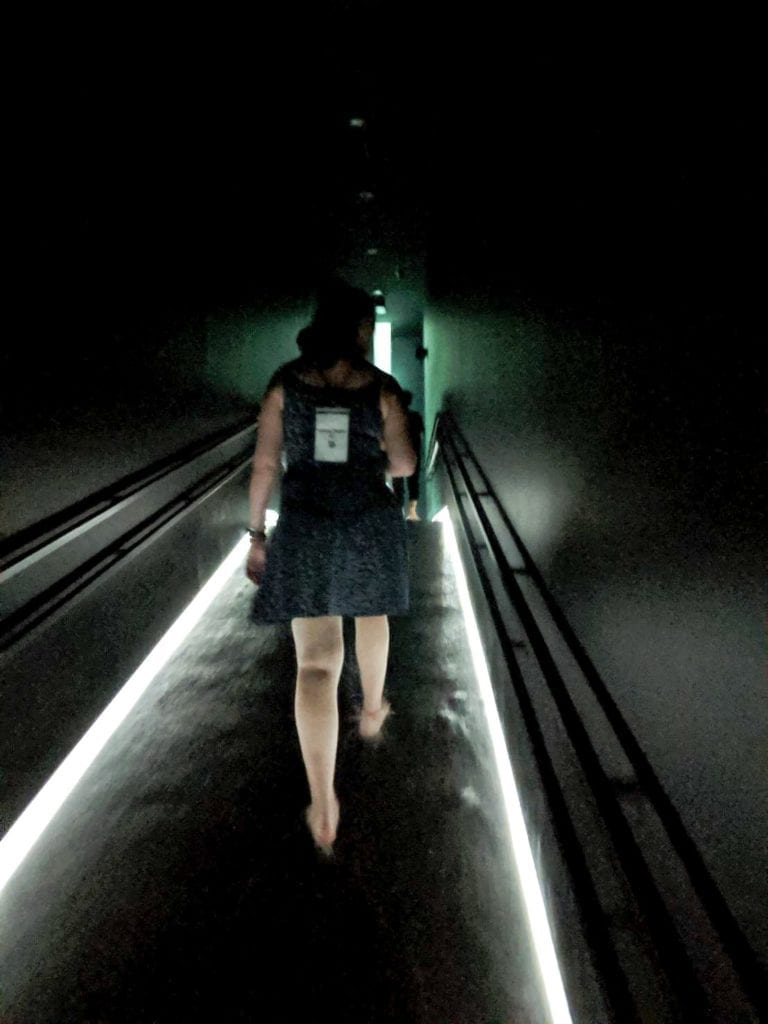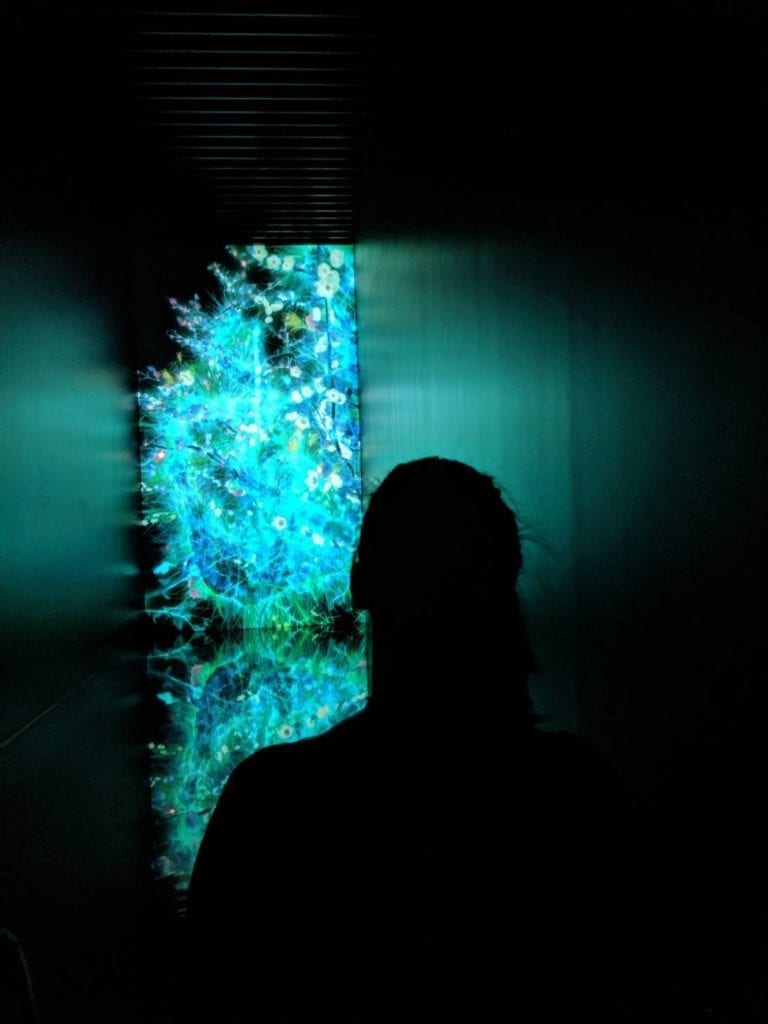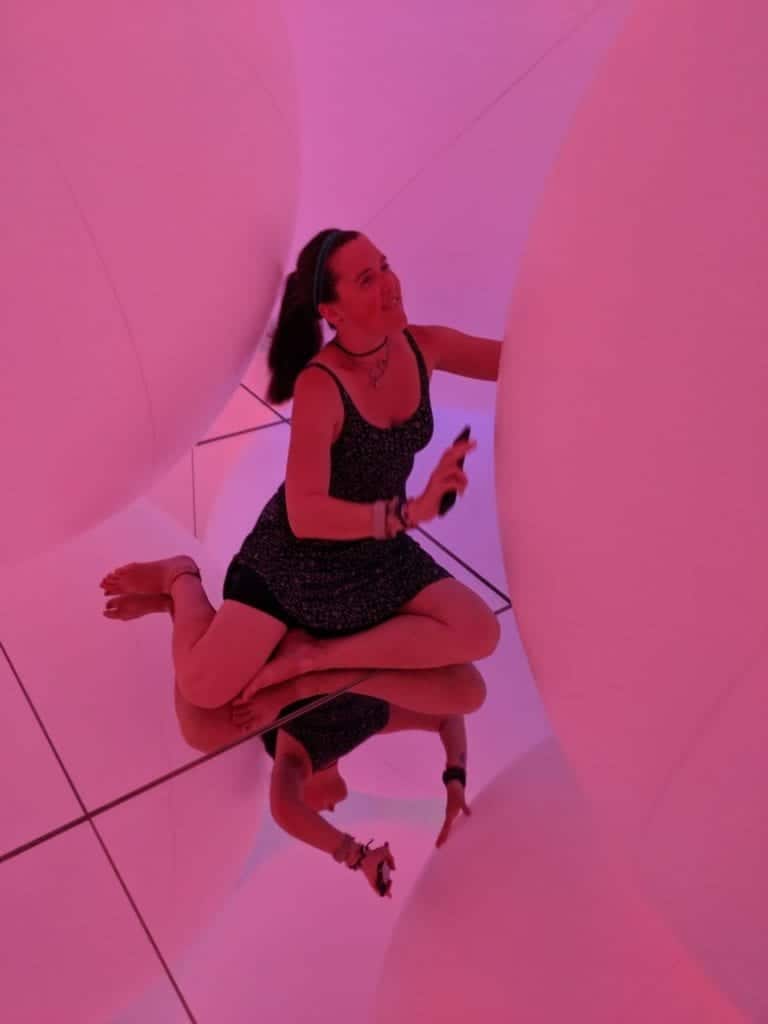The manmade island of Odaiba in Tokyo isn’t necessarily where people tend to go when they first visit Tokyo but there is a lot to do, especially if you are interested in some of the best museums Tokyo has to offer. I was first exposed to teamLab at the National Museum of Emerging Science and Innovation. Or more simply, Miraikan, a few years ago during a special exhibition. There are now two full teamLab exhibits on the island. teamLab Planets Tokyo opened on July 8, 2018, and runs through the fall of 2020. The other is teamLab Borderless (which is permanent).
This post has been updated as of August 2019.
This isn’t just art. teamLab specializes in “body immersive concepts” and this exhibit does not disappoint. It’s a
What gives me the ability to suggest one way or the other for your visit you ask? I’ve been to teamLab Borderless three times and teamLab Planets twice with the sole goal of helping you!
- First, what is teamLab?
- A bit of forewarnings: What to expect
- teamLab Planets: The exhibits
- You won’t miss a thing
- Have Kids? Go to Borderless
- Set time, fewer crowds
- How much time do you need at teamLab Planets
- How to buy tickets
- How to get to teamLab Planets
- teamLab Planets vs. teamLab Borderless
- Exhibits around the world
- Pin this for later

First, what is teamLab?
Founded in 2001 in Japan, teamLab has installations all over the world combining the work of artists, engineers, architects, programmers, animators… you get the drift. Mathematicians even! Yes, because these exhibits are so complex. Think hundreds of computers and projectors.
The art? Digital and sensory overloads, in the most intense, amazing ways possible. These aren’t just moving, interactive lights. Sound, touch, SMELL, discovery is all part of the play. Their goal is
“explore a new relationship between humans and nature, and between oneself and the world through art “
teamLab

A bit of forewarnings: What to expect
Something unique for any other museum visit you’ve probably encountered: You will be barefoot. If you have a foot phobia, maybe not the best option for you and you should go to Borderless.
The Entry
teamLab Planets has timed entry. You will be given a thirty-minute window to show up during. They only allow about 90 people to enter at one time.
You’ll start in an outside waiting area after checking your ticket time. The area is covered with white tents and there are outdoor A/C units every so often to keep you cool if you are there during summer.
Once inside, you’ll watch a quick video and then be shown to the locker room. Remove your shoes before you step on the carpet. The lockers are slightly bigger than teamLab Borderless but if you have large luggage with you (a pretty common sight in Japan for some reason), it’s not going to fit. Best to try and leave it at your hotel or a larger station locker.

You will get wet
Yup, you heard me. Wet. Several of the exhibits, including the very first one, you will be walking through water. You’ll be provided a towel to dry off afterward.
Gentlemen, one of the exhibits you walk through has knee-high water so wear shorts or make sure you can roll your pants up. If not, there’s also the option of renting shorts at no cost.
Glass floors
For you ladies out there, if you’re like me and live in dresses, there are a lot of mirrored surfaces. Basically, the exhibit is going to try and upskirt you. Never fear though, you also have the option to borrow shorts before heading into the exhibit. Literally, they thought of everything.
Dark Corridors and Bright Lights
This is applicable to both locations, if you have issues with dark places or areas of bright lights, you should be aware you will encounter both.

teamLab Planets: The exhibits
There are seven featured exhibits as you walk through the maze of passages in the gallery. Every connection point is part of the experience. The walking surfaces change. Which, since you are barefoot, adds to the sensory experience. The smells change (don’t worry, all good things, though I wouldn’t know how to describe them in words).
Unlike teamLab Borderless, you will be directed through each of the exhibits. There’s only “one” way to go through. That being said, if you aren’t careful, you can miss one of them tucked in the corner. If there are multiple exits, check all before moving on.
The exhibits themselves, you are fully immersed in. You walk up cascading water, roll around in a giant beanbag, be surrounded by changing lights, experience ever-changing digital koi fish in a room of knee-high water, play with giant balls of air, sit in a room full of falling flowers, so much. They are all constantly changing and interacting with the people inside them. I’ll take this type of AI any day.

There are a few exhibits that overlap with teamLab’s other exhibits around the world but there are still nuances between them to make them new and different.
[embedyt] https://www.youtube.com/watch?v=PTcSrOaJufE[/embedyt]
You won’t miss a thing
Whereas Borderless is a free form expanse where you can legitimately miss rooms if you aren’t careful, teamLab Planets is a set course through the exhibits (see the aforementioned warning about multiple exits though).
You want to make sure that you spend a fair amount of time in each space though to make sure you get the whole experience. The Koi Fish, for instance, eventually “speed up” (plus they are super interactive with people!) and if you rush through you might miss it.
My number one suggestion for teamLab Planets is to take your time in the exhibits. Once you leave a room, you can’t go back.
If it gets too busy, they’ll ask you to move along but you definitely want to get the full effect. The same app you can use at teamLab Borderless you can use at teamLab
Have Kids? Go to Borderless
One benefit to Borderless is that it has the top floor of the “Athletic Forest” which has trampolines and climbing areas that are great for kids. Especially if you have very small children, you may have to carry them through the water pieces.
Set time, fewer crowds
Admission into teamLab Planets is different than Borderless that you choose a thirty-minute increment to enter. This helps with the crowds going through. Borderless is a free-for-all, the line to get in can be insane.
How much time do you need at teamLab Planets
Unlike Borderless where you need much of the day, you’ll need much less time at teamLab Planets. Making it better for those short on time and still want the experience. I’d give yourself about 1-1.5 hours at teamLab Planets but if it isn’t very busy you can definitely spend more time with the seven works of art.

How to buy tickets
The easiest option as they tend to sell out is to go ahead and buy your tickets online. They will run you 3,200 yen which is the same as Borderless.
You’ll need the QR code they email to you to get inside. The other option is to use the vending machines at the venue (Japan has vending machines for everything!). If you go with that option, make sure not to lose the paper ticket the machine will give you.
How to get to teamLab Planets
It’s Japan, trains are the best option for getting to the venue! (If you are driving, there is a 1-Hour Parking Ticket at LaLaport Toyosu).
The closest station is Shin-Toyosu Station on the Yurikamome Line where you will be dropped practically right at the door. The other option is a
teamLab Planets vs. teamLab Borderless
If you have time for both, definitely go with that option. Make a day of Odaiba! If you only have time for one, I personally think that the water features in teamLab Planets give it an upper edge
Exhibits around the world
Fear not, there are many more teamLab exhibits around the world. Along with an ever-expanding list of temporary exhibitions (including the upcoming one in Kyoto), teamLab has permanent exhibitions in the following locations.
- Art Gallery of New South Wales, Sydney
- Art Gallery of South Australia, Adelaide
- Asian Art Museum, San Francisco
- Asia Society Museum, New York
- Borusan Contemporary Art Collection, Istanbul
- National Gallery of Victoria, Melbourne
- Amos Rex, Helsinki
Have you seen any of teamLab’s work yet?
Pin this for later

